The ECD Global Alliance is dedicated to enhancing all research and knowledge of Erdheim-Chester disease through supporting leading medical research. The ECD Global Alliance funds research dedicated to exploring the diagnosis, cause, treatments, and cure of Erdheim-Chester Disease.
In addition, the organization works with research teams and patients around the world to facilitate communication between the two groups.
Overview
The ECD Global Alliance is dedicated to enhancing all research and knowledge of Erdheim-Chester disease through supporting leading medical research. The ECD Global Alliance funds research dedicated to exploring the diagnosis, cause, treatments, and cure of Erdheim-Chester Disease.
In addition, the organization works with research teams and patients around the world to facilitate communication between the two groups.
Grant Applications and Review Process
A call for Letters of Intent (LOI) is sent out to all known avenues for dissemination and is posted on the ECD Global Alliance website. Submitted LOIs (Letters of Intent) are reviewed by a committee of qualified researchers and clinicians. The investigators submitting projects that hold the most promise for making a significant and lasting advance in the knowledge and treatment of ECD are then invited to submit a complete proposal.
A Grant Application Review (GAR) Committee made up of qualified researchers is assembled to review submitted application proposals. Individuals on the committee first review each application independently. The GAR Committee then comes together as a group to share comments and discuss each application submitted. This committee provides the ECD Global Alliance Board of Directors with a ranking order of the applications. The Board of Directors then makes the final funding decision and notifies the applicants. Letters of Intent are submitted via an LOI submission form and are reviewed per an LOI Review Process and criteria. Invited proposals are then submitted and reviewed according to the ECDGA Grant Application Process.
Current Grant Opportunities: Early Career Investigator Grant
The ECDGA announces new funding cycles in May/June every year. If you are interested in receiving information about funding cycles, please register with the organization here.
The Erdheim-Chester Disease Global Alliance is pleased to announce a funding opportunity for Erdheim-Chester Disease and adult histiocytic disorders. Up to 60,000 USD will be awarded.
Letters of Intent are due September 5, 2024. This is a significant opportunity for all Early Career Investigators, defined as an individual who has not received previous funding for the study of ECD and is within ten (10) years of receiving their terminal degree or equivalent training. All Early Career Investigators are urged to apply.
Previous Grants Awarded
In April 2010, only one month after receiving a 501(c)(3) designation, the ECD Global Alliance (ECDGA) announced it would be awarding a $50,000 ECD research grant and requested proposals to the international medical research community. In November 2010, the first grant recipient was chosen. Since then, the organization has awarded an annual $50,000 research grant to study Erdheim-Chester Disease and a $316,000 grant to establish an ECD Patient Registry. Additionally, grant collaborations with partners have been made to expand the research investments for ECD.
2024 Grant Awarded in April 2024 Francesco Peyronel, MD (Meyer Children’s University Hospital – IRCCS, Firenze, Italy)
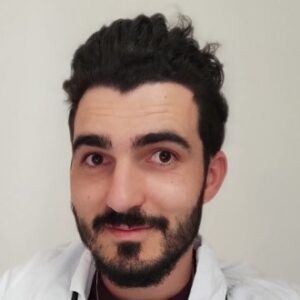 Francesco Peyronel, MD
Francesco Peyronel, MD
Title: A New Comprehensive Approach to Predict Long-Term Prognosis in Erdheim-Chester Disease: From Cluster Analysis to Patient-Reported Outcomes
Amount: 50,000 USD
Survival of patients affected by Erdheim-Chester disease (ECD) has substantially improved over the last decades, thanks to the increased awareness of the disease, the consequent earlier diagnosis, and the use of novel therapies targeting specific mechanisms of key relevance in the disease development. However, patients with ECD still experience significant long-term sequelae, such as neurological disturbances, renal insufficiency, and drug-related toxicity. A more comprehensive evaluation of patients with ECD should therefore assess not only their survival probability but also the development of such long-term consequences.
To date, no large-scale study has evaluated the prognosis of patients with ECD, nor developed a predicting tool capable of defining the probability of survival or chronic disease-related disabilities. The present study aims at developing a comprehensive scoring system for patients with ECD that takes into account several clinical factors which, together with patient-reported measures. This tool will be used to predict the risk of death and of other disease-related consequences.
Both clinicians and patients would benefit from this scoring system: it would be of great usefulness in everyday clinical practice, since it could guarantee an improvement in patients’ evaluation, not only defining the probability of survival but also clarifying the risk of other specific long-term outcomes. Moreover, patients and families would receive more accurate prognostic information, becoming aware of the risk of specific long-term sequelae and eventually being able to improve their means to prevent the rapid progression of chronic disturbances.
2023 Grants (2) $200K grants Awarded in April 2023 – Gaurav Goyal (University of Alabama at Birmingham, Birmingham, AL US) & Matthew Collin (Newcastle University, Newcastle upon Tyne, UK)
Gaurav Goyal, MD
Title: Survivorship and Symptom Burden in ECD
Amount: 200,000 USD in partnership with the Leukemia & Lymphoma Society
The prognosis of ECD has improved tremendously due to the approval of targeted therapies. However, these treatments are administered for prolonged duration and can lead to side effects and complications. These factors have led to a growing survivor population that is at an increased risk of disease/treatment-related symptoms, chronic health conditions, psychological problems, pain, and poor health-related quality of life. There is a lack of understanding about these health effects among people with ECD. We propose a multi-institutional international study in collaboration with the ECD Global Alliance to answer these critical questions. The study will aim to address the long-term health problems experienced by people with ECD and evaluate the symptom burden and evolution after starting treatments. The proposed study will involve the completion of survey questionnaires by individuals at participating institutions and those registered with the ECD Global Alliance. The results from the proposed study will help define the healthcare needs of people with ECD and the symptoms experienced by them while on treatment. Ultimately, the study results will be used to counsel patients in the clinic about long-term effects and devise follow-up guidelines. These results will also lead to targeted interventions aimed at improving the symptoms and other health problems among the ECD population.
Interim Report
The survival of people with ECD has improved with the introduction of targeted therapies, resulting in a growing population of people living with ECD as a chronic illness. There is a knowledge gap with respect to the burden of chronic medical conditions, mortality, symptoms, and health-related quality of life in ECD. Our study aimed to address these questions through the Histiocytic Disorder Follow-Up Study, which involves the completion of a detailed survey pertaining to health problems experienced by individuals with ECD through the ECDGA registry, including nearly 450 individuals with ECD from the US. We also aim to evaluate the physical and mental health symptoms that encompass the health-related quality of life through a survey administered in the clinic. As of December 2023, we have completed survey data from 75 individuals with ECD from the ECDGA registry, with a goal of approximately 300 completed surveys over the next 2-3 years. We have also received completed health-related quality-of-life surveys from 39 individuals with ECD. These surveys have suggested that individuals with ECD may experience worse physical health and fatigue compared with the general population without ECD. We anticipate that the completion of this study will lead to the development of follow-up guidelines to care for people with ECD in the clinic and strategies to improve long-term outcomes and symptoms.
Matthew Collin, MD
Title: Inferring the origin of Erdheim-Chester Disease from phylogenetic mapping
Amount: 200,000 USD in partnership with the Leukemia & Lymphoma Society
Erdheim Chester Disease (ECD) is caused by mutations in the DNA of blood cells. Blood cells are formed in the bone marrow from stem cells that can live for many years producing many generations of new stem cells. The frequent questions that patients ask about ECD include: where did it come from? how long have I had it? couldn’t anything have been done sooner? why does my disease affect a particular site? Our research aims to shed new light on these important questions. The technique we will use is called ‘phylogenetic mapping’. This approach allows us to go back in time and ‘date-stamp’ the origin of mutations that cause ECD, to within a few years of a patient’s past life. The way that this works is by growing many clones of single stem cells in the laboratory and sequencing the whole genome of each clone. Each clone differs from the next by a few mutations in its DNA. Some of these mutations arose a very long time ago in the ancestors of the stem cell when the patient was younger. By sequencing about one hundred clones it is possible to reconstruct the life history of the stem cells within a person and so create a timeline of mutations as they appear over the years. Among these mutations will be the mutation that caused ECD in the patient. If we know the timeline of all of the mutations, we can ‘datestamp’ the ECD mutation. We can then estimate how long the ECD mutation lay dormant in the body, how quickly it grew to a size that could cause disease, and whether it was assisted by any other mutations on the way. These are fundamental issues. In other related diseases called myeloproliferative neoplasms, mutations arise in childhood and evolve into different types of disease depending on other events in the life of a patient, over decades. When we apply this analysis to ECD, we should be able to answer the questions about its origin. The potential benefits also include the possibility to detect ECD at an early stage before it has evolved to cause disease; to determine why there is a spectrum of affected organs in different patients; and, why some patients have higher risk disease that progresses more quickly. Finally, unraveling the ‘personal life history’ of ECD may help us in the future with personalized therapy for better outcomes.
2022 Grants (2) Awarded to Drs. Egle Kvedaraite (Karolinska Institutet, Solna, Sweden) & Jithma Abeykoon (Mayo Clinic in Rochester, MN US) Egle Kvedaraite Dr. Egle Kvedaraite is a Postdoctoral Fellow with the Department of Pathology and Cancer Diagnostics at the Karolinska University Hospital – Unit of Molecular Neurobiology in Stockholm, Sweden. Dr. Kvedaraite was awarded the Early Career Investigator Award for $50,000 to conduct the study Spatial understanding of Erdheim-Chester Disease origin and lesional microenvironment. Interim Report The overall aim of our research is to gain deep insights into disease mechanisms of Erdheim-Chester Disease (ECD), that may can affect many different organs, such as skin, bones, heart, and brain. ECD is today classified as a certain type of blood cancer, and mutation called BRAFV600E, as well as other mutations, have been found in tumor cells. The disease may be life-threatening, and new treatment targeting the mutation in tumor cells has significantly improved mortality in ECD patients. However, once the treatment is stopped, the disease usually comes back, and new treatment approaches, aiming at complete elimination of the mutant cells are urgently needed. But how can we eliminate the mutant cell pool? What is the cell of tumor origin in ECD? How the cells surrounding the tumor in the affected organs are helping the tumor cells to survive? To answer these questions, we have been using state-of-art technologies connecting detailed understanding of one cell at a time together with spatial information of how these disease-causing cells are positioned in the affected tissues. In more detail, during the first year of the project, we have completed patient recruitment and sample selection, as well as optimization of experimental and analytic pipelines, that have been specifically adjusted to analyze selected ECD samples. In addition, we have published two studies on a ECD-like disease, and data from those studies will be used to compare ECD data with (Kvedaraite et al, Science Immunology 2022; Shi, He, Cui, Kvedaraite … et al, Blood 2021). These newly established protocols optimized for ECD, as well as already generated data, are going to be used in the next phase of the project and allow us to perform our investigations not on all cells together, but one cell at the time – using so called single-cell techniques, that have been proven to be extremely helpful for understanding normal and mutated cells, and different flavors of those cells. That is important, because in different patients, there might be differences within the tumor cells, and to be able to eliminate all of them we need to first find out exactly what they are, and how they differ from each other. Importantly, our analyses of the neighbors of mutated cells in different organs, including the brain, will provide insights into tissue environmental cues survival of the disease-causing cells. In summary, significant progress has been made during the first year of the project regarding all objectives/aims, and deliverables necessary for achievement of each aim have been completed according to the time plan. Dr. Jithma Abeykoon is the Senior Associate Consultant, Assistant Professor in Hematology and Medical Oncology, and Clinician Investigator in Hematology and Medical Oncology at the Mayo Clinic in Rochester, MN. In collaboration with Uplifting Athletes, Dr. Abeykoon has been awarded a $20,000 grant for the study Prognostic and Therapeutic Significance of Chromosome Region Maintenance 1 (CRM1) Protein in Erdheim Chester Disease. 2021 Grant Awarded to Dr. Francesco Pegoraro (Meyer University Children’s Hospital, Florence, Italy) & Dr. Gaurav Goyal (University of Alabama at Birmingham, Birmingham, AL US) Francesco Pegoraro, MD The ECD Global Alliance has awarded the 2021 ECD Research Grant to Dr. Francesco Pegoraro, with Meyer University Children’s Hospital, Florence, Italy. The winning proposal, Exploring the genetic landscape of Erdheim-Chester disease by integrating GWAS and -omic data, was selected for funding for $50,000. The ECDGA is honored to be funding this groundbreaking work and believes it will result in a brighter future for ECD patients and a better understanding of histiocytosis. View Press Release Interim Report The project entitled “Exploring the genetic landscape of Erdheim-Chester disease by integrating GWAS and -omic data” was designed to investigate the genetic predisposition to ECD by performing methylation and gene expression studies. The genome-wide association study on ECD, whose results have been presented at the 2023 ECDGA meeting and are currently submitted for publication, identified a genetic variant (SETBP1) associated with ECD predisposition. We are now analyzing methylome and gene expression from patients to better understand the role of SETBP1 in disease pathogenesis. The same analyses will be performed on the most important cell type in ECD (monocytes), and, to complete this task, we are currently performing sampling and monocyte extraction from patients with ECD. These samples will be then shipped to Prof. Martin’s lab where the genetic analyses will be performed. Gaurav Goyal, MD Dr. Gaurav Goyal is an Assistant Professor of Hematology-Oncology and ECD Care Center lead physician at the University of Alabama Birmingham. In collaboration with Uplifting Athletes, Dr. Goyal has been awarded a $20,000 grant for a Histiocytic Disorders Survivor Study (HDSS). Results from the study will be used to help devise guidelines for the follow-up care of ECD and other histiocytosis patients and develop intervention strategies in the future to mitigate long-term complications. The study aims to utilize the ECDGA Patient Registry to understand the spectrum of long-term health conditions that patients with ECD struggle with, including quality of life and chronic pain. 2019 Grant Awarded to Nicole Coufal, MD, Ph.D. (University of California, San Diego US) In 2019, a $50,000 young investigator award was granted to Nicole Coufal with the University of California, San Diego. Study Title: “Pathophysiology of Neurodegenerative Erdheim-Chester Disease and Langerhans Cell Histiocytosis” The long-term goal of this project is to not only improve the understanding of ECD and LCH (Langerhans Cell Histiocytosis) associated neurodegeneration but to generate hypotheses and models that will allow for novel drug screening paradigms to improve the treatment of the devastating neurological form of this disease. Final Report Neurological symptoms and neurodegeneration occur in both Langerhans Cell Histiocytosis (LCH) and Erdheim-Chester Disease (ECD) and vary from leukoencephalopathy to late progressive neurodegeneration but commonly include evidence of active demyelination. Microglia are the immune cells of the brain and are heavily implicated in neurodegenerative disease. In general, microglia in neurodegenerative disorders are often viewed as a secondary process, and it is unclear whether microglia activation is protective or harmful. One potential way in which the blood-borne mutation could lead to neurodegeneration in LCH and ECD is that the blood cells carrying the mutation become abnormal microglia and these activated BRAF mutated microglia cause brain damage and ultimately neurodegenerative symptoms. However, the data in human patients to date is limited and there are no human models for LCH or ECD at present – not for neurodegeneration or for LCH/ECD in general. Neurodegeneration in both LCH and ECD is variably responsive to treatment and often debilitating. We have generated the first human model of LCH/ECD in a dish using patient-derived blood samples to generate patient-specific stem cells (induced pluripotent stem cells) to make microglia from the same patient cell line carrying one of the most common mutations seen in LCH/ECD patients, the BRAF(V600E) mutation. We have found that microglia with the BRAF(V600E) mutation are more activated and hyperinflammatory but also have a specific defect in their ability to phagocytose neurodegenerative relevant stimuli such as amyloid beta, whereas their normal phagocytosis is intact. This suggests that there are several ways in which BRAF(V600E) mutation carrying microglia may contribute to neurodegeneration – not only through inflammation but also through an inability to properly clear the brain of neurodegeneration-associated proteins such as amyloid plaques. 2017 Grant Awarded to Benjamin H. Durham, MD (Memorial Sloan Kettering Cancer Center, New York, NY US) Memorial Sloan-Kettering Cancer Center in New York received a $50,000 research grant. Principal investigator, Benjamin H. Durham, MD, leads the study Defining the Cell-of-Origin of Erdheim-Chester Disease. The bone marrow cells from ECD patients will be studied to try to determine the cells that cause ECD. With this information, it may be possible to create a successful model of ECD that can be used for future studies by scientists from around the world. A secondary goal of this study will be to compare the gene profile of ECD cells with the cells of other blood cancers that are often seen in ECD patients. Dr. Durham is a hematopathologist and molecular genetic pathologist who has previously identified various genetic mutations associated with ECD. These findings have led to immediate therapeutic options for patients. Final Report Through comprehensive genomic sequencing analyses of the largest group of children and adults (270 patients) sequenced to date with histiocytic neoplasms of which the largest subgroup is Erdheim-Chester disease (ECD), several new and targetable kinase genetic alterations have now been discovered in ECD and other histiocytoses. The discovery of BRAFV600Emutations in these diseases around 8 years ago resulted in our understanding of these disorders as a type of cancer with future studies leading to the FDA-approval of vemurafenib for adult patients with BRAFV600E-mutated ECD (Hyman, D et al. NEJM 2015). However, it is still not clear what cell types lead to the development of ECD and other histiocytoses (Mass E, et al. Nature 2017) nor are all the genetic alterations in this disease defined. Here we identify the first examples of recurrent CSF1Rkinase mutations in any disease, as well as numerous additional new kinase alterations driving ECD and other histiocytoses. The discovery ofCSF1Rmutations is significant because (1) CSF1Rdefines the monocyte/macrophage lineage and, therefore, reveals histiocytic neoplasms as derived from monocytes/macrophages, and (2) there are numerous inhibitors of CSF1R in development (and one is already FDA-approved for other diseases). We also demonstrate the first example of clinical responses to RET inhibition in RET-rearranged histiocytosis as well as evidence of preclinical responses to CSF1R inhibition in CSF1R-mutant cells. These data are highly clinically important and will be of immediate interest due to the excitement about CSF1R inhibition in cancer, RET inhibition, and precision medicine for rare disorders such as ECD. 2015 Grants (3) Awarded to Marina Ferrarini, MD & Lorenzo Dagna, MD, Filip Janku, MD, PhD & Omar Abdel-Wahab, MD, & Eli Diamond, MD (Memorial Sloan Kettering Cancer Center, New York, NY US) Marina Ferrarini, MD, and Lorenzo Dagna, MD were awarded $50,000 for their project, “Tailoring Treatment for Erdheim-Chester Disease.” The Ferrarini and Dagna study focuses on understanding how malignant cells in ECD patients accumulate and interact with neighboring normal cells to fuel the disease, causing lesions and tumors to form. With this understanding, the discovery of a treatment strategy that can interrupt the processes, stopping the disease from progressing, may be possible. Final Report Our study focuses on a better understanding of the pathogenic events operating inside ECD lesions, as well as the mechanisms exerted by selected drugs/new molecules on mutated histiocytes. This is expected to result in the discovery of novel strategies providing ECD patients with treatments that are more effective and with fewer side effects than those currently available. So far, we have identified molecules and pathways that may have a key role in disease progression; we plan to investigate how these molecules act to fuel the disease and also test the efficacy of potentially available inhibitors. In order to validate these findings and improve treatment for ECD patients, we are also taking advantage of state-of-the-art bioreactor technology. The bioreactor, originally developed by NASA spatial research, works under conditions of simulated microgravity, allowing the tissue to remain viable during culture and offering the unprecedented possibility to test and compare the effectiveness of treatments. We were able to apply this technology, which we have already exploited for other diseases, also to ECD tissues. We have collected information on the mechanisms exerted by available drugs, particularly kinase inhibitors, on ECD lesions, unveiling new putative therapeutic targets, in particular metabolic pathways, that can be further exploited to design new combination therapies. Finally, we have identified Chromogranin A, a pro-hormone associated with inflammation and heart failure, as a possible marker of cardiac disease also in ECD. This molecule can be detected in plasma samples and can be potentially used as a novel non-invasive procedure to monitor cardiovascular involvement and response to treatment in ECD patients. Filip Janku, MD, Ph.D., and Omar Abdel-Wahab, MD were awarded a $50,000 grant for their project, “Understanding and targeting novel molecular alterations in Erdheim-Chester Disease without the BRAFV600E mutation.” This study’s purpose is to discover treatable mutations found in BRAF-negative ECD patients and test in the lab which treatments will work best for them. Final Report As part of an international collaboration between Drs. Janku, Omar Abdel-Wahab, and collaborators in France, the first comprehensive genomic analysis of ECD including both whole-exome sequencing (WES) paired with whole transcriptome analysis (by RNA-seq) was performed. This effort identified several recurring activating mutations and fusions in ECD and has since been published/ In addition, WES, RNA-seq, and targeted genomic analysis of ECD and related histiocytosis in the investigators’ clinical practices continue to be performed. To date, we have performed WES in ~40 ECD patients and have identified additional targeted genetic alterations not identified in the above publication. Furthermore, targeted next-generation sequencing (NGS) or PCR of archival tissue samples and/or blood-derived cell-free (cf) DNA samples from 25 patients treated at MD Anderson and UCSD Moores Cancer Center were performed. Initial data were presented at the Annual ECD International Medical Symposium in September 2016. Since then, the data set has been expanded to include samples from 9 patients treated at the Memorial Sloan Kettering Cancer Center (Dr. Eli Diamond) and 2 additional patients from MD Anderson. Eli L. Diamond, MD, and Vaios Hatzoglou, MD were awarded a $43,000 grant for their project, “A Clinical, Structural, and Functional Neuroimaging Study of Cognition in Erdheim-Chester Disease.” The purpose of this study is to understand the neurological/cognitive effects of ECD. Final Report This study examined ECD patients without neurologic involvement by ECD and without prior therapies or medical history that could introduce independent injury to cognition or abnormal brain imaging. Participants underwent detailed cognitive testing, structural MRI looking at the integrity of the white matter and overall brain volumes, as well as functional MRI to evaluate the connectivity of brain networks. All patients were compared to age-matched healthy controls. Ten patients were evaluated. Striking data was seen, supporting the frequent informal observation that ECD patients struggle with thinking and memory even when they do not have a neurologic infiltration of their ECD. The MRI results were equally striking, namely that the ECD patients had dramatically reduced integrity of their white matter compared to controls. When looking at overall brain volumes, there was also a decrease in the patients compared to controls. The functional MRI results were more dramatic. There were abnormalities of functional networks of memory and attention in the patients compared to controls. Publication of the acquired data is expected. 2014 Grants (2) Awarded to Eli Diamond, MD (Memorial Sloan Kettering Cancer Center, New York, NY US) & Matthew Collin (Newcastle University, Newcastle upon Tyne, UK) The 2014 grant was awarded to principal investigators Eli Diamond, MD from Memorial Sloan-Kettering Cancer Center in New York, and Matthew Collin from Newcastle University in the UK, for the “Design and Creation of a Global Registry Database for Erdheim-Chester Disease.” The patient registry will be a collection of standardized information about the ECD group of patients to evaluate specified outcomes defined by this disease. The data will serve a scientific, clinical purpose. This is expected to be a two (2) year effort with a budget of $316,000 being granted from the ECD Global Alliance. Interim Report The ECD Patient Registry has been broadened since it was first developed. It now encompasses additional histiocytic disorders. Numerous papers have been published based on the data learned from this study to include, but not limited to: Ankush Bhatia, Vaios Hatzoglou, Gary Ulaner, Raajit Rampal, David M Hyman, Omar Abdel-Wahab, Benjamin H Durham, Ahmet Dogan, Neval Ozkaya, Mariko Yabe, Kseniya Petrova-Drus, Katherine S Panageas, Anne Reiner, Marc Rosenblum, Eli L Diamond, Neurologic and oncologic features of Erdheim–Chester disease: a 30-patient series, Neuro-Oncology, Volume 22, Issue 7, July 2020, Pages 979–992, https://doi.org/10.1093/neuonc/noaa008 Reiner AS, Bossert D, Buthorn JJ, Sigler AM, Gonen S, Fournier D, Brewer K, Corkran J, Goyal G, Allen CE, McClain KL, Atkinson TM, Lynch KA, Mao JJ, Panageas KS, Diamond EL. Patient-reported fatigue and pain in Erdheim-Chester disease: a registry-based, mixed methods study. Haematologica. 2023 Jun 1;108(6):1685-1690. doi: 10.3324/haematol.2022.282287. PMID: 36546452; PMCID: PMC10230438. Reiner AS, Applebaum AJ, Bossert D, Buthorn JJ, Sigler AM, Fournier D, Brewer K, Atkinson TM, Lynch KA, Gilliland J, Mao JJ, Panageas KS, Diamond EL. Dyadic communication in rare cancer: a registry-based study of patients with Erdheim-Chester disease and their caregivers. Blood Adv. 2023 Oct 10;7(19):5904-5910. doi: 10.1182/bloodadvances.2023010827. PMID: 37540824; PMCID: PMC10558707. Kirchner J, Hatzoglou V, Buthorn JB, Bossert D, Sigler AM, Reiner AS, Ulaner GA, Diamond EL. 18F-FDG PET/CT versus anatomic imaging for evaluating disease extent and clinical trial eligibility in Erdheim-Chester disease: results from 50 patients in a registry study. Eur J Nucl Med Mol Imaging. 2021 Apr;48(4):1154-1165. doi: 10.1007/s00259-020-05047-8. Epub 2020 Oct 15. PMID: 33057928; PMCID: PMC8041681. Riancho JA, Hernández JL, González-Vela C, López-Sundh AE, González-Lopez MA, Gomez de la Fuente F, Quirce R, Diamond EL. Erdheim-Chester Disease Due to a Novel Internal Duplication of NRAS: Response to Targeted Therapy with Cobimetinib. Int J Mol Sci. 2023 Oct 23;24(20):15467. doi: 10.3390/ijms242015467. PMID: 37895147; PMCID: PMC10606995. 2013 ECDGA Grant Awarded Omar Abdel-Wahab, MD (Memorial Sloan Kettering Cancer Center, New York, NY US) In September 2013, the ECD Global Alliance announced a $50,000 grant, awarded to Omar Abdel-Wahab, MD, David Hyman, MD, and Eli Diamond, MD from Memorial Sloan-Kettering Cancer Center in New York (MSK), New York for the study described as, “Somatic Genetic Alterations in the Pathogenesis and Therapy of Histiocytic Disorders.” As described in the MSK press release, the aim of this study is to: Final Report The phase II study of Vemurafenib in ECD and LCH patients bearing the BRAFV600E mutation was completed. This study was carried out in the context of an international study sponsored by Roche and the results were submitted to the New England Journal of Medicine with Dr. Hyman as the lead author. The results of this study will result in FDA approval of vemurafenib for ECD and LCH patients with the BRAFV600E mutation in the U.S. In addition, a phase II clinical trial of the MEK inhibitor cobimetinib for ECD patients without the BRAFV600E mutation was opened. This trial is sponsored by Genentech and is open for patient enrollment as of Spring 2015. As a corollary to the vemurafenib clinical trial, a collaborative study was performed with Dr. Filip Janku at MD Anderson Cancer Center to understand the utility of cell-free As a collaborative effort with Drs. Julien Haroche and Jean-Francois Emile the largest genomic study of ECD patients to date was completed, identified the true frequency of the BRAFV600E mutation in ECD as well as several, additional, novel therapeutically targetable mutations in ECD patients (including NRAS, KRAS, and PIK3CA mutations). This work was published in Blood and featured on the cover of Blood and in an “Inside Blood” Editorial. 2012 ECDGA Grant Awarded to Julien Haroche, MD, PhD (Hôpital Pitié-Salpêtrière, Paris, France) & Laurent Arnaud, MD (Hôpital Pitié-Salpêtrière, Paris, France) In April 2012, the organization announced a grant awarded to Laurent Arnaud, MD, Ph.D. and Julien Haroche, MD, Ph.D. from Hôpital Pitié-Salpêtrière in Paris, France for the study described as, “Understanding dendritic cell lineages in Erdheim-Chester disease: towards a non-invasive diagnosis.” The aim of this study was to understand the primary mechanisms involved in the pathogenic differentiation of histiocytes in ECD, as well as to use these data to derive a screening & diagnostic test for ECD that would rely on blood sampling without the need for a biopsy. 2011 ECDGA Grant Awarded to Lorenzo Dagna, MD (San Raffaele Scientific Institute, Milan, Italy) The ECD Global Alliance 2010 grant was awarded to Lorenzo Dagna, MD at San Raffaele Scientific Institute in Milano, Italy for the study described, “Hypoxia and inflammation in Erdheim-Chester disease microenvironment: insights on the pathogenesis and implications for therapy proposal.“ Final Report The aim of this study was to better define the microenvironment inside ECD lesions and to evaluate the possibility of using specific drugs, already available for human usage, to find new therapeutic options for the disease. The study ran from January 2011 until June 2012. The results of this study can be found in the Journal of Clinical Oncology, Vol. 310, 2012, in an article entitled, “Tumor Necrosis Factor as a Master Regulator of Inflammation in Erdheim-Chester Disease: Rationale for the Treatment of Patients with Infliximab.” Last updated: November 15, 2024
Interim Report

Title: Spatial understanding of Erdheim-Chester Disease origin and lesional microenvironment
Amount: 50,000 USD
 Jithma Abeykoon
Jithma Abeykoon
Title: Prognostic and Therapeutic Significance of Chromosome Region Maintenance 1 (CRM1) Protein in Erdheim Chester Disease
Amount: 20,000 USD in partnership with Uplifting Athletes
Title: Exploring the genetic landscape of Erdheim-Chester disease by integrating GWAS and -omic data
Amount: 50,000 USD
Title: Histiocytic Disorders Survivor Study (HDSS)
Amount: 20,000 USD in partnership with Uplifting Athletes Nicole Coufal, MD, Ph.D.
Nicole Coufal, MD, Ph.D.
Title: Pathophysiology of Neurodegenerative Erdheim-Chester Disease and Langerhans Cell Histiocytosis
Amount: 50,000 USD Benjamin H. Durham, MD
Benjamin H. Durham, MD
Title: Defining the Cell-of-Origin of Erdheim-Chester Disease
Amount: 50,000 USD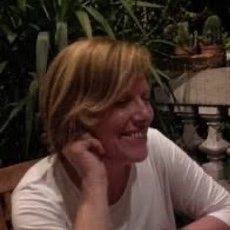
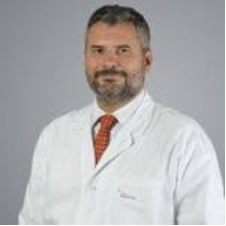 Marina Ferrarini, MD & Lorenzo Dagna, MD
Marina Ferrarini, MD & Lorenzo Dagna, MD
Title: Tailoring Treatment for Erdheim-Chester Disease
Amount: 50,000 USD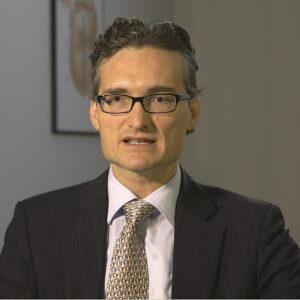
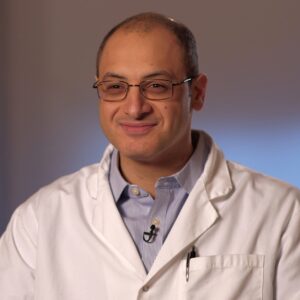 Filip Janku, MD, PhD & Omar Abdel-Wahab, MD
Filip Janku, MD, PhD & Omar Abdel-Wahab, MD
Title: Understanding and targeting novel molecular alterations in Erdheim-Chester Disease without the BRAFV600E mutation
Amount: 50,000 USD Eli Diamond, MD
Eli Diamond, MD
Title: A Clinical, Structural, and Functional Neuroimaging Study of Cognition in Erdheim-Chester Disease
Amount: 43,000 USD
 Eli Diamond, MD & Matthew Collin
Eli Diamond, MD & Matthew Collin
Title: Design and Creation of a Global Registry Database for Erdheim-Chester Disease
Amount: 316,000 USD
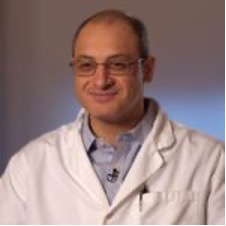 Omar Abdel-Wahab, MD
Omar Abdel-Wahab, MD
Title: Somatic Genetic Alterations in the Pathogenesis and Therapy of Histiocytic Disorders
Amount: 50,000 USD
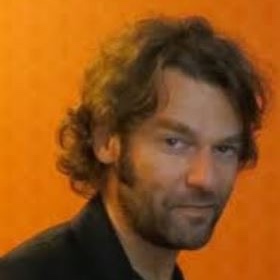 Julien Haroche, MD, PhD
Julien Haroche, MD, PhD
Title: Understanding dendritic cell lineages in Erdheim-Chester disease: towards a non-invasive diagnosis
Amount: 47,000 USD Lorenzo Dagna, MD
Lorenzo Dagna, MD
Title: Hypoxia and inflammation in Erdheim-Chester disease microenvironment: insights on the pathogenesis and implications for therapy proposal
Amount: 49,745 USD










